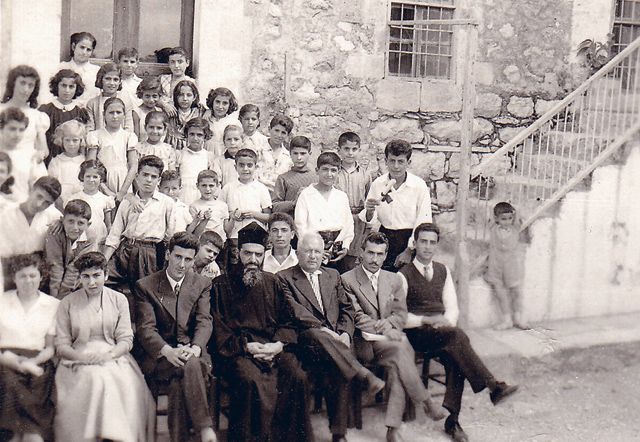Dubai: Hrach Kalsahakian's grandfather, Garabed, was one of 4,000 Armenians whose ancestors settled in Kessab, Ottoman Syria, many generations ago.
Following the First World War, the town fell under the French mandate of Syria but only after half its Armenian population was either killed or marched out to as far as East of Syria and Jordan by Ottoman troops, according to the accounts of its inhabitants.
Garabed however survived, and his descendants, forming part of the eight million strong Armenian diaspora, have since moved from country to country, taking with them their family stories.
Hrach settled in the UAE in 1998. Having been born in Greece, where his father Hagop taught Armenian, he lived in Lebanon, Kuwait and Syria before moving here.
The Armenian diaspora, numbering almost three times the population of the Republic of Armenia, has scattered around the world, becoming citizens of and integrated in their host countries while maintaining its language, traditions and, most importantly for some, its memories.
Milestone
Since the 1950s the UAE has hosted Armenians from the diaspora from a number of countries including Iran, Iraq, Lebanon, Syria, Ethiopia and Turkey, all of whom have brought with them a little of their adopted countries and their ancestral homeland.
Many Armenians in the diaspora marked this week's events as a milestone in the history of their community. The Republic of Armenia took the first major step towards normalising relations with its nemesis Turkey after a century of hostility.
The move led to protests in Armenia and among its influential diaspora communities worldwide.
Opponents of the normalisation say that Armenia should not establish relations until Turkey recognises the First World War killings of 1.5 million Armenians as genocide. Turkey has refused.
Some in the diaspora feel let down by the Armenian republic for not having a say in the process.
"Those who worked and campaigned to have the genocide be recognised feel let down. The diaspora was completely left out of this. The Armenian president [Serge Sarkisian] visited the diaspora communities only after the decision was made," said Sebouh Armenakian, a Cypriot-Armenian in marketing who has lived in the UAE for 23 years.
Armenakian said that those living in Armenia do not feel the same way about the genocide as the diaspora does. "My family has lived outside its homeland solely because of the genocide," he said.
Memories
Kalsahakian agreed that diaspora Armenians would be more poignant on the issue "because all they have left of Armenia are the memories, and they feel that there is an attempt for it to taken away".
"Those inside Armenia have their land. The diaspora does not," he said.
He says however that Armenians living in the republic have also struggled for the cause of the killings, and are "equally affected".
"They suffered a border blockade from Turkey because they refused to let go of the genocide and because of [the disputed region of] Nagorno-Karabakh," he said.
Diaspora Armenians are quick to point out that it is not relations with Turkey that are contentious, but the specifics of the normalisation process.
Agreement included plans for the setting up of a joint commission of independent experts to study the genocide issue, which some Armenians have said casts "doubt over a historic fact".
"There is nothing to examine. The genocide is a fact," said Armenakian.
Hrach, however, said that there was no relation between the struggle to recognise the killings, and normalising relations with Turkey.
"To be Armenian does not mean to be anti-Turkish. We are beyond vengeance," he said.












